Views: 0 Author: Site Editor Publish Time: 2025-04-16 Origin: Site
Tissue paper is an essential part of our daily lives, used in everything from cleaning up spills to personal hygiene. But as we grow more conscious of sustainability, questions arise about whether tissue paper can be recycled. The short answer is that tissue paper is technically recyclable, but the process is complicated. To understand why, we need to explore terms like "pulp" and how different paper products are treated during recycling. This article dives into the recycling challenges of tissue paper, its environmental implications, and tips to minimize waste. We'll also break down other paper products, including kitchen rolls and paper tissues, to give you a clear picture of what's recyclable and what’s not. Stick around to find out how you can make better choices with a trusted brand like Baoda Paper.
Tissue paper is a thin, lightweight material primarily made from wood pulp. Pulp is a fibrous material derived from cellulose, which comes from trees, recycled paper, or other plant-based fibers. This material undergoes chemical or mechanical processes to create the base for many paper products. While tissue paper is soft and pliable, its composition makes it uniquely challenging to recycle. Why? Because tissue paper often contains shorter fibers compared to other paper products, which limits its potential for reuse in making new paper items.
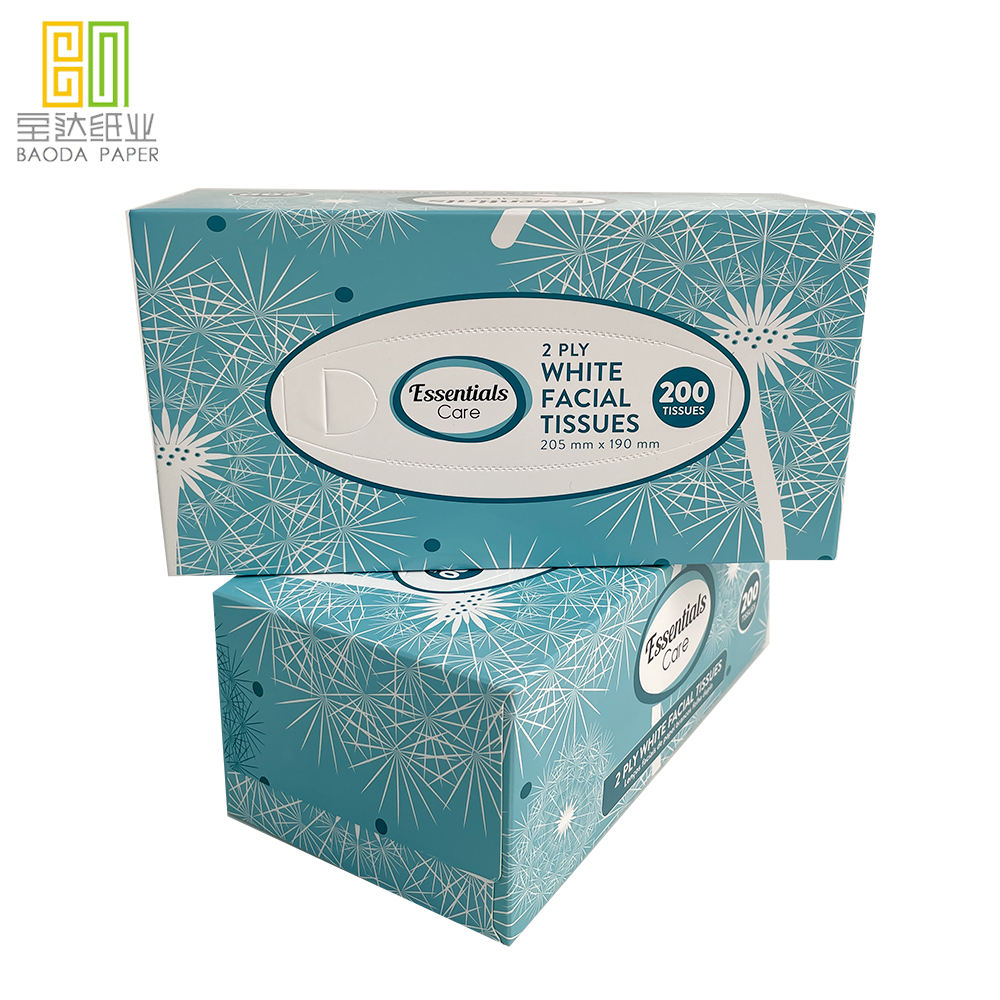

To better understand whether tissue paper is recyclable, let's break down the recycling process. Recycling involves several steps, from sorting to re-pulping, where used paper products are broken down into their original fibers:
Recyclable materials are collected from households or companies. These materials are then sorted into categories such as office paper, cardboard, or other paper products.
The sorted paper is soaked in water and chemicals to break it down into pulp. During this stage, contaminants like ink, staples, or glue are removed.
The pulp is further processed to eliminate any remaining impurities or ink, ensuring a pure material ready for manufacturing new paper.
Finally, the cleaned pulp is formed into new paper products using machinery. This process works efficiently for many paper types, but tissue paper poses exceptions due to its short fibers.
Although tissue paper is made from paper, various factors complicate its recyclability:
Paper products lose fiber strength when recycled repeatedly. Tissue paper is typically created from recycled materials that have already gone through multiple recycling cycles. By the time it becomes tissue paper, the fibers are too short to be recycled further.
Tissue paper often comes into contact with oils, food particles, or bodily fluids. Contaminants like these can make recycling unhygienic or impossible. Disposable kitchen rolls used to clean up greasy surfaces or facial tissues used during a cold cannot be processed in standard recycling streams.
Some tissue products contain adhesives, fragrances, or lotions that further complicate the recycling process. These additional components must be separated during recycling, which often requires specialized facilities most municipalities lack.
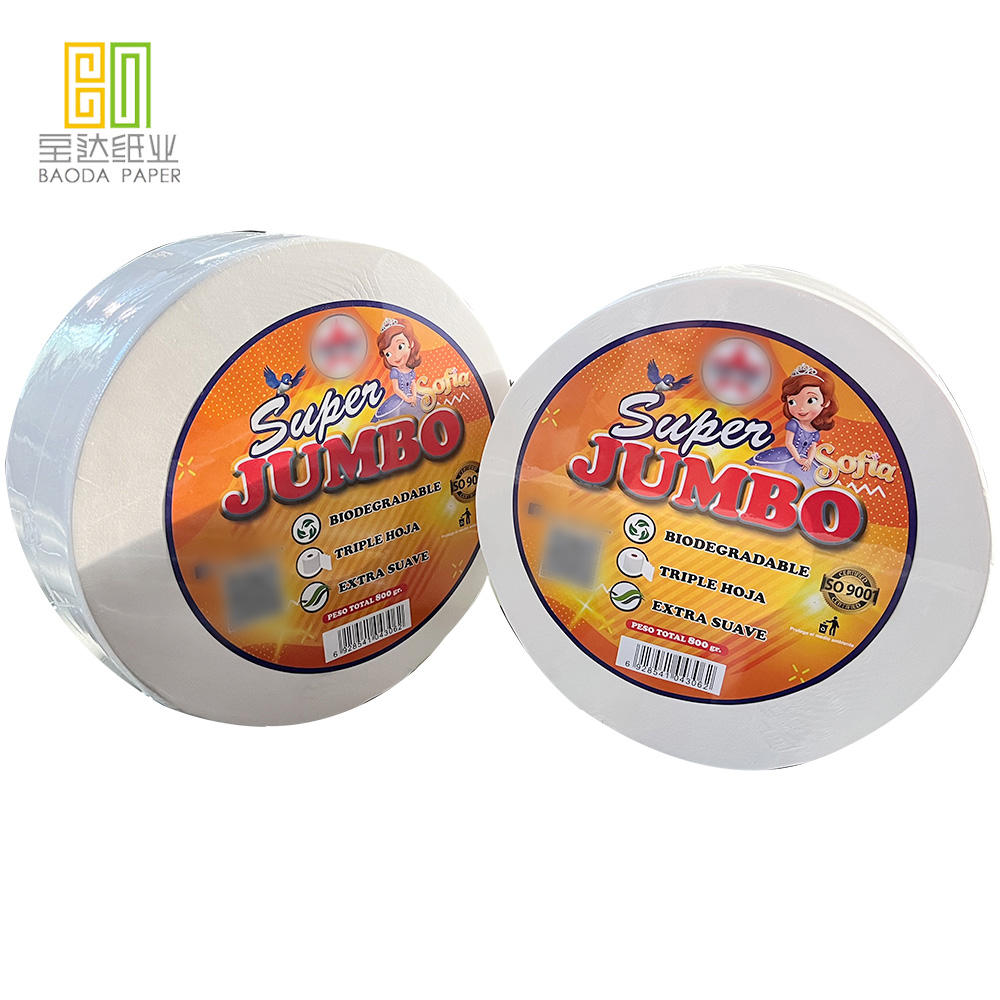
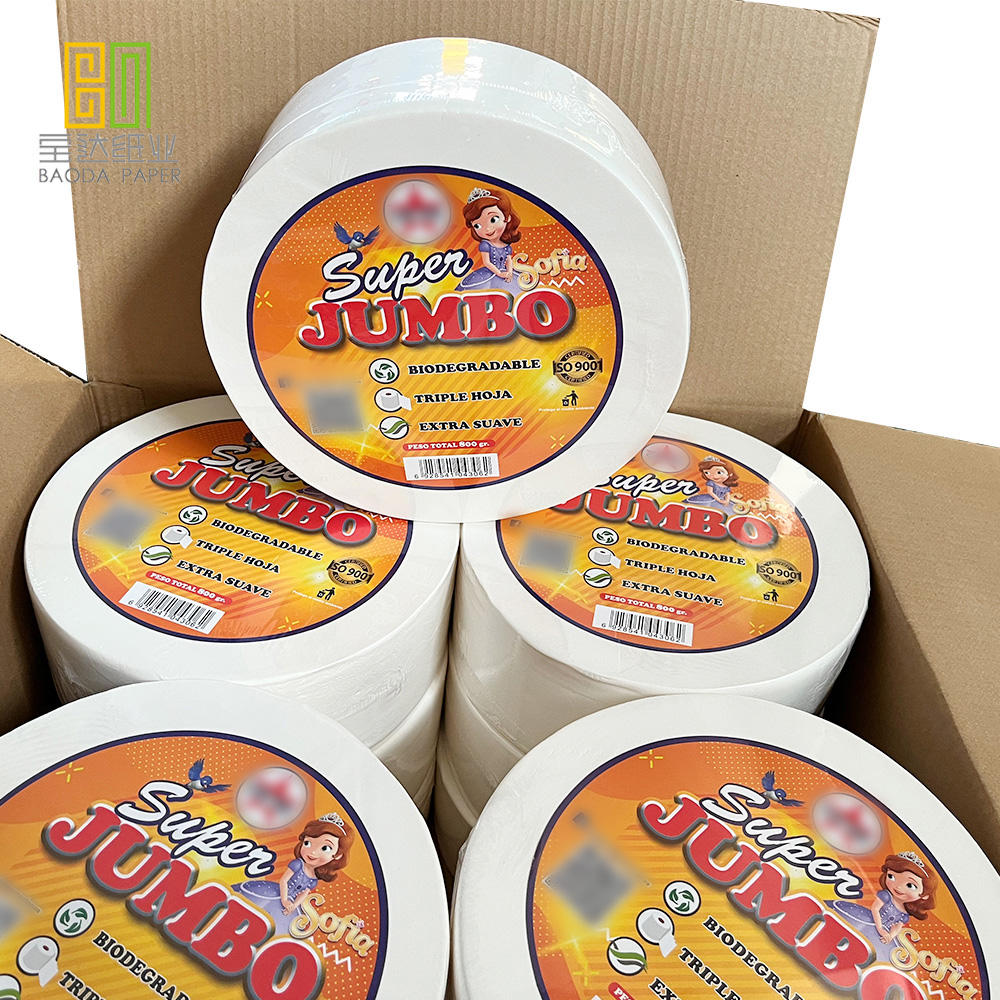
Not all paper products share the same recycling prospects. Here is a table summarizing the recyclability of common paper items:
| Product | Recyclable? | Reasons |
|---|---|---|
| Office Paper | Yes | Contains long fibers ideal for recycling into new paper products. |
| Cardboard | Yes | Made from sturdy fibers that hold well during recycling. |
| Paper Tissue | Rarely | Short fibers and contamination limit recycling feasibility. |
| Kitchen Roll | Rarely | Similar issues as tissue paper; often contaminated with grease or food. |
| Newspaper | Yes | Recyclable due to its simple composition and longer fibers. |
| Glossy Paper | Sometimes | May be recyclable if free from plastic coatings or heavy inks. |
Although tissue paper is not entirely recyclable, it still impacts the environment, for better or worse. Here's what to consider:
Tissue paper decomposes relatively quickly compared to plastics or other synthetic materials. This means it doesn't persist in the environment for decades, reducing its long-term ecological footprint.
Deforestation: Many tissue products still use virgin wood pulp from trees, contributing to deforestation.
Water and Energy Use: Tissue manufacturing consumes significant resources, including water, electricity, and chemicals.
Waste Generation: Since tissue paper often ends up in landfills, its potential for creating methane gas during decomposition is concerning.
If your goal is to reduce waste and be more eco-friendly, there are alternatives to throwing tissue paper away. Here are some tips:
Clean, non-contaminated tissue paper can be composted. If you have a home composting system, tear the paper into small pieces to speed up decomposition.
Be mindful of how much tissue paper you use. Opt for cloth towels for cleaning whenever possible.
Purchase paper tissue made from 100% recycled materials. These products reduce the demand for virgin pulp, saving trees and energy.
While tissues contaminated with oil or bodily fluids should go in the trash, unused or clean scraps may be acceptable in green waste bins in some municipalities. Check with your local guidelines.
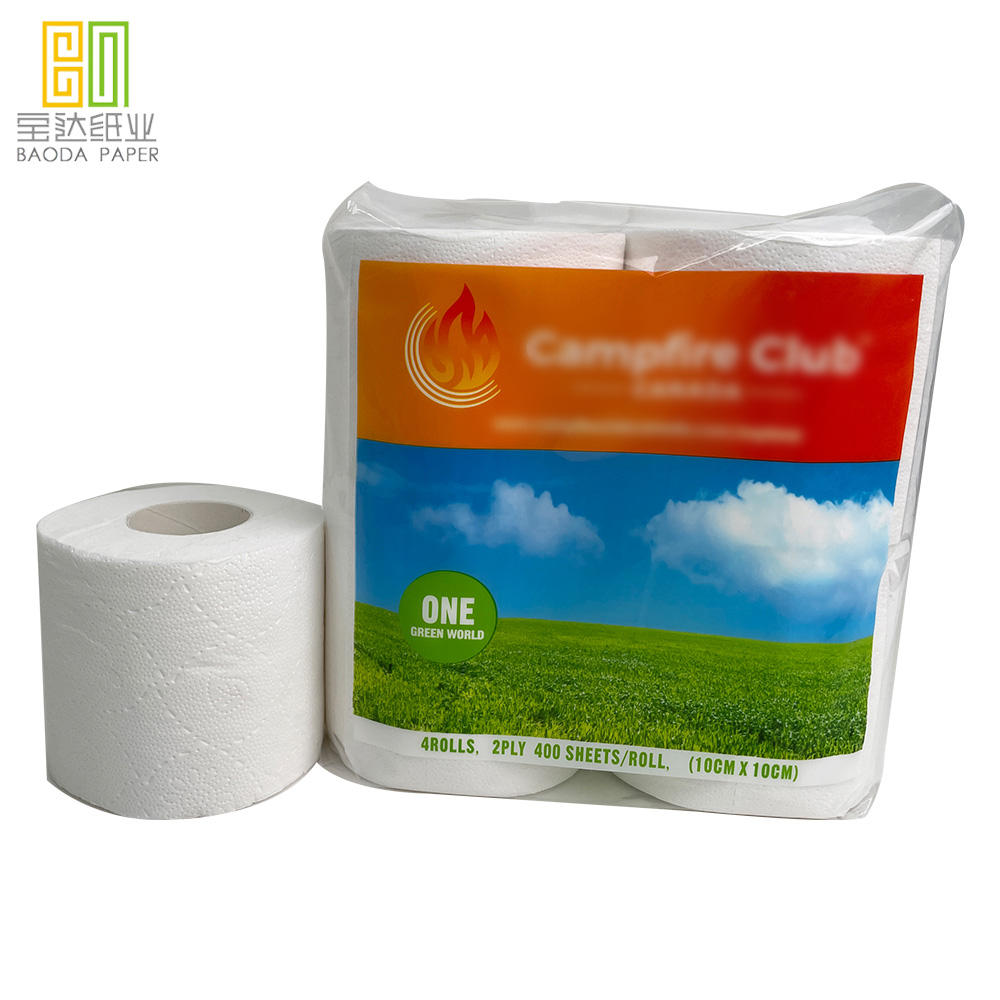
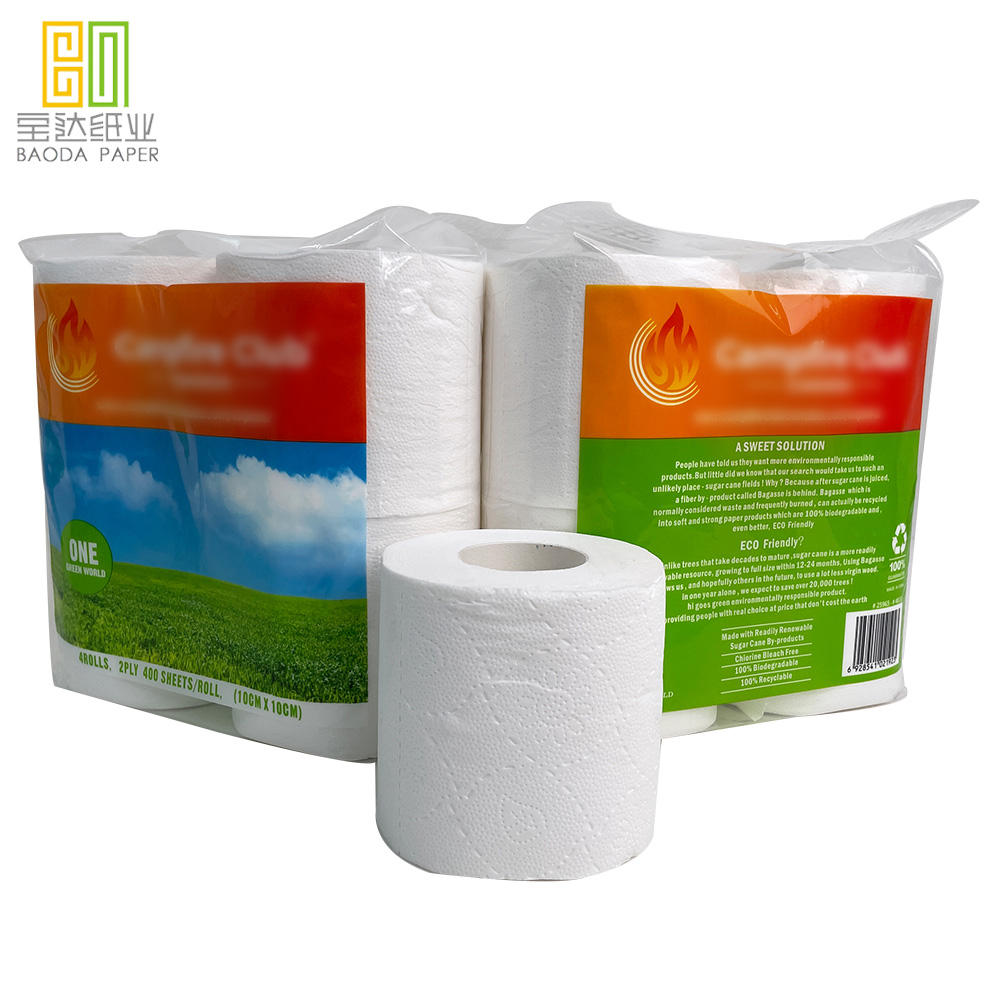
No, tissue paper is typically not accepted in curbside recycling due to its short fibers and potential contamination.
Composting is a great option if they are not contaminated with chemicals or oil. Otherwise, dispose of them as waste.
Yes, look for brands that use recycled materials and sustainable production methods, such as Baoda Paper.
Glossy or decorated tissues usually contain coatings or dyes that make them unrecyclable.
Yes, always check with your local waste management for specific guidelines on recycling and composting.
For those seeking high-quality tissue paper while supporting sustainability, Baoda Paper is a trusted supplier. The brand emphasizes eco-friendliness by using recycled pulp and employing efficient manufacturing practices. Choosing Baoda Paper means you’re contributing to reducing environmental impact while enjoying premium-grade products.
If you’re interested in exploring Baoda Paper’s offerings, feel free to reach out to them:
Email: sale@baodapaper.com
Phone: +86-750-6895212
Though tissue paper is not widely recyclable, understanding why helps us make better waste management decisions. By opting for sustainable brands like Baoda Paper, limiting usage, and exploring composting, you can minimize environmental harm from everyday paper products. Small changes in our buying habits can significantly impact the planet, one tissue at a time.
| | Address: Xinyuan Industrial Development , Xinhui District , Jiangmen City, Guangdong province , China |
| | Custom Support & Sale: +86-750-6895212 |
| | phone: +86-13380963281 |
| | E-mail: sale@baodapaper.com??????? |